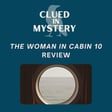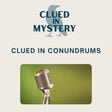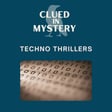![[Re-release] Mysteries in Unusual Formats image](https://media.zencastr.com/cdn-cgi/image/width=54,quality=85/image-files/61e1c276e3ec42007857cff9/d8f895fc-5446-494f-b2f8-5a3f6b131e98.jpg)
[Re-release] Mysteries in Unusual Formats
This episode was originally released on January 30, 2024.
Avid mystery fans are familiar with the expectations of the genre. Occasionally, an author will try something new and delight fans in the process. In this episode, Brook and Sarah discuss mysteries that bend genre conventions.
Discussed and mentioned
Wrong Place Wrong Time (2023) Gillian McAllister
Love Letters Between a Nobleman and his Sister written (1684) Aphra Behn
Dracula (1897) Bram Stoker
Woman in White (1859) Wilkie Collins
A Good Girl’s Guide to Murder (2019) Holly Jackson
The Christmas Appeal (2023) Janice Hallet
The Appeal (2021) Janice Hallett
The Woman in the Library (2022) Sulari Gentill
The Documents in the Case (1930) Dorothy L. Sayers
Ink Black Heart (2022) Robert Galbraith
The Block Party: A Novel (2023) Jamie Day
Security (2016) Gina Wohlsdorf
Murder in the Family (2023) Cara Hunter
Tell Me What Really Happened (2023) Chelsea Sedoti
The Twyford Code (2022) Janice Hallett
The Mysterious Case of the Alperton Angels (2023) Janice Hallett
Sliding Doors (1998) film
Glass Onion: A Knives Out Mystery (2022) film
For more information
Instagram: @cluedinmystery
Contact us: hello@cluedinmystery.com
Music: Signs To Nowhere by Shane Ivers – www.silvermansound.com
Sign up for our newsletter: https://cluedinmystery.com/clued-in-chronicle/
Join the Clued in Cartel for as little as $12 USD/year: https://cluedinmystery.com/clued-in-cartel/
For a full episode transcript, visit https://cluedinmystery.com/re-release-mysteries-in-unusual-formats/
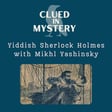
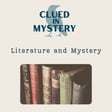
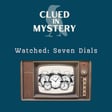
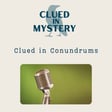
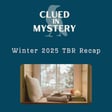
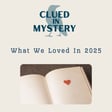
![[Re-release] Anthony Berkeley image](https://media.zencastr.com/cdn-cgi/image/width=112,quality=85/image-files/61e1c276e3ec42007857cff9/e7c778ac-a2ba-4809-9a5c-7cd39d167834.jpg)
![[Bonus] Wake Up Dead Man image](https://media.zencastr.com/cdn-cgi/image/width=112,quality=85/image-files/61e1c276e3ec42007857cff9/e276ac32-e664-464f-956c-7699bdb60aa5.jpg)
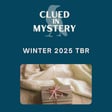
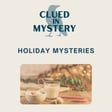
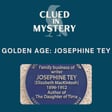
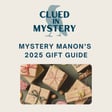
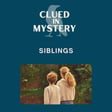

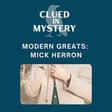
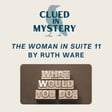
![[Bonus] Read Along: Daughter of Time image](https://media.zencastr.com/cdn-cgi/image/width=112,quality=85/image-files/61e1c276e3ec42007857cff9/b953ad72-c43e-48ca-a18a-b3c216ab90ee.jpg)
